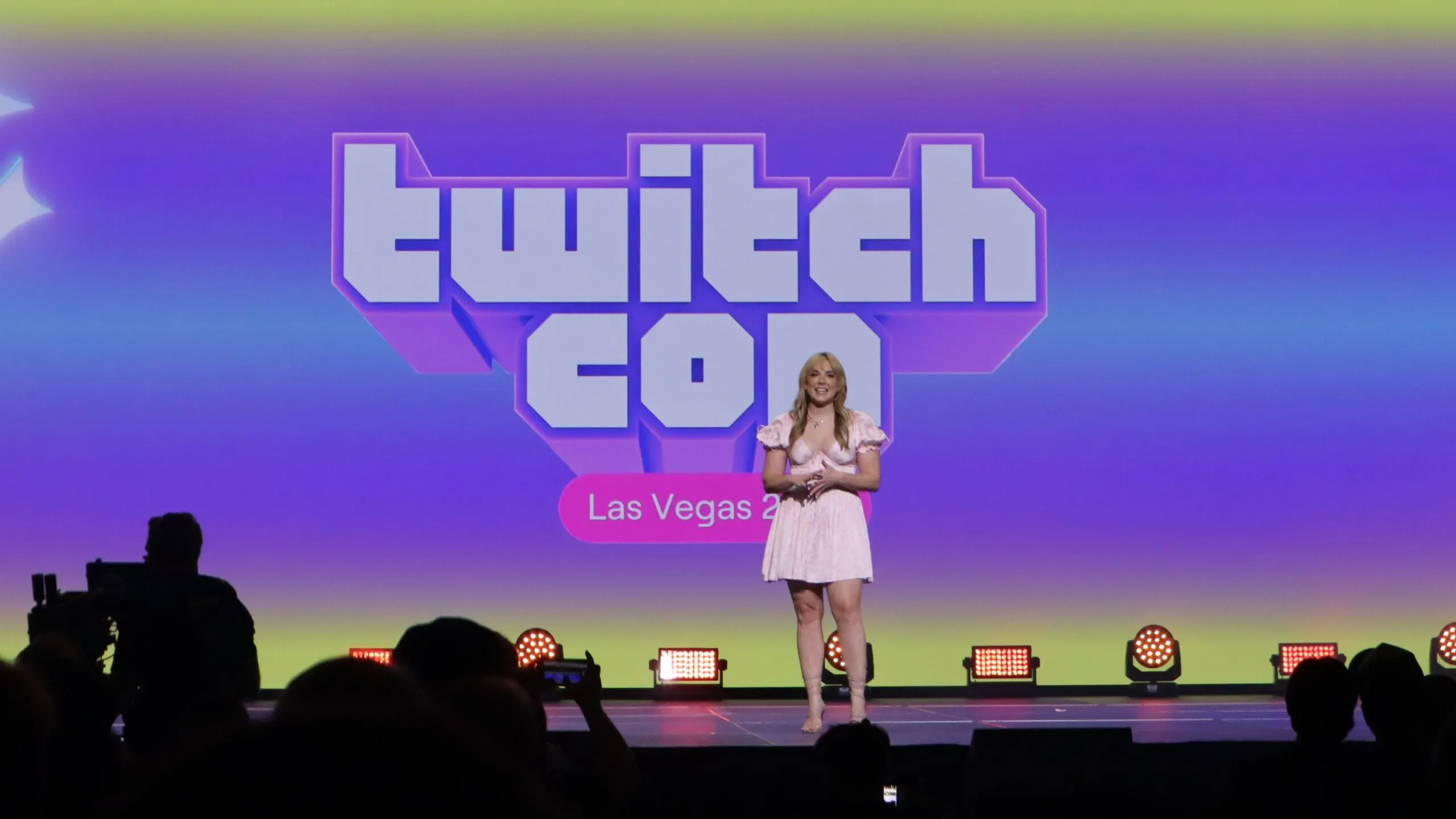In an interview at TwitchCon Las Vegas, Twitch Senior Director of Community Marketing and Production Mary Kish told Decrypt that the biggest difference between the streaming platform and rising rival Kick is, simply, that Twitch is safer than its Stake-funded rival.
This year, streamers like former Overwatch esports player Felix “xQc” Lengyel and FaZe Clan co-owner Nicholas “NickMercs” Kolcheff signed eye-watering $100 million and $10 million deals, respectively, to stream on Kick.
But at TwitchCon in October, Twitch CEO Dan Clancy announced that streamers could now simulcast to any number of platforms without being demonetized or losing their “affiliate” or “partner” status on Twitch. This led to speculation that perhaps Tyler “Ninja” Blevins’ outspoken stance in favor of streaming “everywhere” might have finally inspired Twitch to make the long-awaited change to its restrictive streaming policies.
“A lot of these changes, they never come from one person,” Kish told Decrypt when asked if Blevins spurred the change. “They would not come from one talk.”
Instead, Kish credited Clancy for the new, more open policy.
“He was doing a lot of research,” Kish said of Clancy. “There’s also several people behind the scenes, including the community team, that talk to streamers regularly and give that feedback to the executive team that led to a decision of that magnitude. It wasn’t a small decision.”
Twitch’s simulcasting changes did not come quickly, and were something that took up many internal meetings and conversations, she said.
“We don’t want to limit streamers,” Kish added of Twitch’s reason for the change.
So why stream on the Amazon-owned platform, then, when rival Kick promises creators a much higher revenue split than the predecessor it’s imitating?
“There’s no question that Twitch really puts a lot of energy into our safety features,” Kish told Decrypt. “We are the safest—in my opinion—livestreaming service that you can have.”
Kish cited Twitch’s numerous features for stream moderators, like Mod View and Shield Mode, as some of the site’s offerings creators can use to help keep their streams safe and censor harmful content that might be slung into their chat boxes by trolls or hateful users—which are, unfortunately, commonplace online.
“We’ve taken legal action against people who have broken our terms of service,” Kish said. “We take safety extremely seriously on Twitch.”
A representative for Kick has not yet responded to Decrypt’s request for comment on Kick’s safety features and how they compare to Twitch.
But Twitch’s unique subculture, slang, and emotes are also a big part of what keeps the platform’s users stuck to it like glue over a decade since its inception as Justin.tv back in 2011. Twitch now claims an average of 35 million visitors per day and saw over 1.3 trillion minutes watched last year, according to the platform.
Well-funded competitors like Microsoft’s Mixer and Facebook Gaming have also tried and failed to rival the purple platform’s grasp on livestreamers and viewers alike.
“I genuinely believe that the community sticks around on Twitch because it’s safe,” Kish emphasized. “It’s really welcoming to streamers of all types. We welcome all different people—come as you are.”
Since the onslaught of “hate raids” that spread across Twitch like a virus for years, the site has developed new features to help streamers prevent and combat what it calls “targeted attacks.” Twitch also has broad policies on hateful conduct, allowing it to discipline users for any behavior deemed “motivated by hatred, prejudice, or intolerance.”
While Twitch doesn’t have the best record for enforcing its policies clearly, it at least has rules in place that allow it to take sweeping actions against bad actors—if deemed necessary.
Like with hate raids and simulcasting, Twitch took a similarly reactive (as opposed to proactive) approach to the rise of gambling streams on its platform last year after prominent streamers like Imane “Pokimane” Anys decried the surge of gambling sponsorships on Twitch. Now, Twitch policy states that Stake, Rollbit, and other gambling sites are banned and cannot be streamed. The only types of casino games that are still permitted on Twitch are sports betting, fantasy sports, and poker, per Twitch’s website.
Twitch appears to be moving forward with a safety-first approach—and the ethos that allowing streamers to explore other platforms won’t hurt the platform in the long run.
“We want them to explore and experience livestreaming however they want to do it,” Kish said. “It’s a good direction for everyone. And we really will take that W.”

